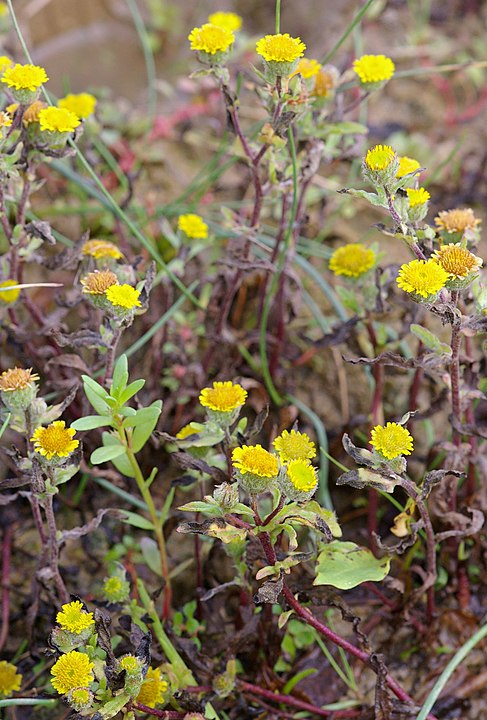 |  |  |   |  |
 |  |
Small Fleabane
is an annual plant that grows in height from 10 to 50 cm. It has a distinct peculiarity - an unpleasant smell. The stem is branched and erect, covered with fine gray hairs, but glabrous at the base.
The leaves are almost naked, elongated or lanceolate, with a round base, finely toothed, wavy, 1.5-3.5 cm long. Flower baskets solitary or arranged in irregular cymes, numerous (up to 100 per plant), generally forming a thick inflorescence.
The plant blooms from June to September, the seeds ripen in July-October.
The above-ground part of the plant (inflorescences, leaves and stems) and roots are used for medicinal purposes. The leaves and stems of
small Fleabane
are collected at the beginning of flowering (June-July) in dry and sunny weather. Dry in a well-ventilated room, avoiding direct sunlight, spread out in a thin layer on cloth, paper or wooden pallets. Dried drug is crushed, sifted and stored in a hermetically sealed container for no longer than two years.
Roots are dug in autumn and washed in running water. The roots are dried and cut into 3-4 cm pieces and spread on sieves. To prevent the roots from getting damaged, it is recommended to stir them once a day. It is recommended to dry within 7-10 days. It can be stored for up to 2 years.
The active substances of the surface part of
small Fleabane
are alkaloids, polyacetylene compounds, coumarins, essential oils, ascorbic acid, tannins, organic acids, rubber, saponins, flavonoids. Rubber and polyacetylenic compounds were found in the roots.
Medicinal significance
Small Fleabane
has pronounced diuretic properties, it is used in folk medicine to treat edema. The plant also has anti-inflammatory properties when used externally, a particularly effective plant to treat hemorrhoids.
This plant is known thanks to its insecticidal effect, it helps fight insects that can bite a person. Used against fleas, lice, as well as flies and mosquitoes.
In folk medicine,
small Fleabane
is used to treat all possible diseases of the digestive tract, diarrhea, dysentery, constipation, chronic colitis. Decoctions and infusions are used to improve stomach function and normalize acid-alkaline balance.
The
small Fleabane
helps to treat tuberculosis, it is used in various medicinal mixtures and taken as a course.
Decoctions and infusions help to treat hemorrhoids, in these cases they are used as microclyses, compresses and sitz baths.
The oral cavity can be rinsed with plant preparations in cases of severe toothache. Decoctions of the plant also strengthen the body, so they are added to baths for children, if they tend to catch colds often.
